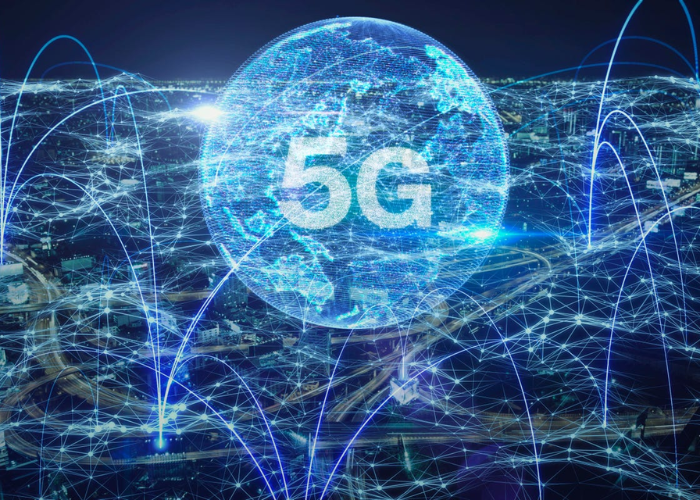In the world of digital technology, we are constantly looking for ways to enhance our communication capabilities. We want to be able to communicate with each other faster and with greater accuracy. This is where 5G technology comes in. 5G is the fifth generation of wireless communication networks and is expected to revolutionize the way we use mobile devices and wireless networks. This blog post will provide an in-depth look at 5G, its benefits, challenges, and its potential impact on the future.
What Is 5G?
5G is the fifth generation of wireless technology. It is the latest mobile network technology that offers faster data speeds, increased capacity, and lower latency than its predecessors. 5G offers much faster speeds than 4G and can be up to 20 times faster than 4G. It also offers increased capacity, which means more users can be connected to the same network at the same time and will be able to access more data simultaneously. Additionally, 5G has much lower latency than 4G, which means that data can be transferred much more quickly and with less delay. This is especially important for applications that require real-time response such as video streaming, virtual reality, and remote surgery. 5G also has the potential to enable a variety of new and innovative services that were not possible with previous generations of wireless technology.
5G networks will be deployed using a combination of new and existing spectrum bands, including the low-, mid-, and high-band spectrum. Low-band spectrum offers broad coverage, but relatively slow speeds. Mid-band spectrum offers a balance of coverage and speed, while high-band spectrum offers faster speeds but has a shorter range. 5G networks also use beamforming, which means that the network can direct radio signals to a specific user or device. This allows for more efficient use of the available spectrum and enables the network to provide higher speeds and lower latency.
Benefits of 5G
5G offers many advantages over its predecessor, 4G. 5G technology is expected to offer speeds up to 10x faster than 4G, with a latency of less than 1 millisecond. This means that 5G can support applications such as virtual reality, autonomous driving, and streaming. 5G also offers increased capacity, which will enable more devices to be connected to the network at any given time. This increased capacity also means that 5G can support more applications and services, such as cloud gaming and augmented reality. Additionally, 5G is expected to reduce the cost of data transmission, making it more affordable for consumers.
Challenges and Concerns of 5G
5G technology is not without its challenges and concerns. One of the biggest issues is that 5G networks require a much higher frequency than 4G networks, which means that the signal will not travel as far. This means that 5G networks need to have more base stations, which can be expensive to deploy. Additionally, the higher frequency of 5G means that it is more susceptible to interference, which can lead to slow speeds or even dropped connections. Additionally, 5G networks are not yet widely available, so there are limited areas where they can be used.
5G and Its Impact on the Future of Mobile Communication
5G technology has the potential to revolutionize the way we communicate. 5G networks are expected to offer speeds up to 10x faster than 4G, with a latency of less than 1 millisecond. This means that applications such as virtual reality, autonomous driving, and streaming can be supported. Additionally, 5G is expected to reduce the cost of data transmission, making it more affordable for consumers. 5G is also expected to have a greater capacity than 4G, allowing more devices to be connected to the network at any given time. This increased capacity will enable more applications and services, such as cloud gaming and augmented reality.
The introduction of 5G is expected to have a major impact on the future of mobile communication. 5G networks will enable faster speeds, greater capacity, and lower costs. This will allow for more applications and services to be developed, which will create new opportunities for businesses and consumers alike. Additionally, 5G networks will enable more devices to be connected to the network at any given time, which will enable new and innovative use cases.
Conclusion
5G technology is expected to revolutionize the way we use mobile devices and wireless networks. 5G will offer faster speeds, greater capacity, and lower costs, which will enable new and innovative applications and services. Additionally, 5G is expected to have a major impact on the future of mobile communication, creating new opportunities for businesses and consumers alike. As 5G technology continues to evolve, we can expect to see even more innovation and advancements in the world of mobile communication.






